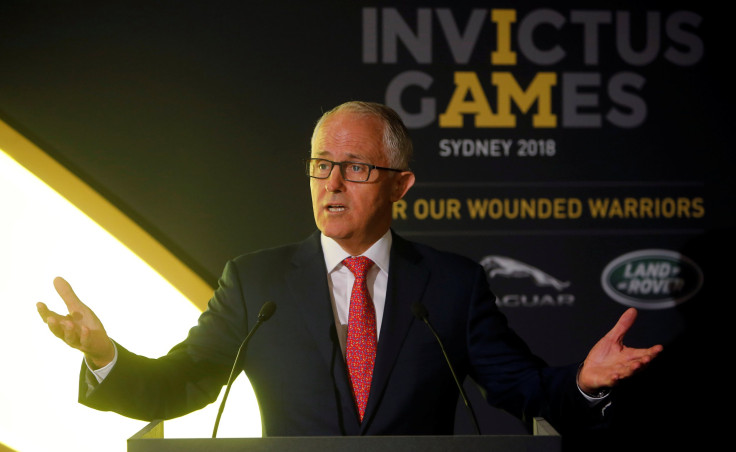Turnbull government abandons $8.2 billion Medicare levy increase

The government is scrapping its $A8.2 billion planned increase in the Medicare levy, declaring a stronger budget outlook means it is not needed to fund the National Disability Insurance Scheme.
The levy, the biggest new revenue measure in last year’s budget, had no foreseeable prospect of passing the Senate in full, because Labor only supported a rise for those with incomes of more than $87,000.
Abandoning the measure will give more credibility to the budget numbers, which will be carefully scrutinised by the credit-rating agencies, and enable the government to sharpen its differences with Labor in the election battle on tax.
The increase in the levy – which would have taken it from 2% to 2.5% of taxable income - was due to start from July 1 next year. The $8.2 billion revenue was over the forward estimates.
The budget will include income tax cuts. But while it kept the levy rise on the books the government faced the criticism that it would be giving with one hand and taking with the other.
Treasurer Scott Morrison will say in a speech on Thursday that with a stronger economy, the fiscal position has improved compared with a year ago.
“That is why we are now in a position to give our guarantee to Australians living with a disability and their families and carers that all planned expenditure on the NDIS will be able to be met in this year’s budget and beyond without any longer having to increase the Medicare levy,” he will tell an Australian Business Economists function.
The government has not abandoned its argument that Labor left a gap in the funding of the NDIS - which the ALP flatly denies. Morrison will stress: “What I am announcing today is that gap can now be made up over time by continuing to deliver a stronger economy and by ensuring the government lives within its means”.
In an upbeat address just under two weeks out from the May 8 budget, Morrison will say that the economy “is finally shaking off the dulling effects of the downturn in the mining investment boom.”
“Naturally, a stronger economy provides for a stronger budget.”
He will say that company profits were “savaged” in the long come-down from the mining investment boom. This took a heavy toll including on government revenues.
“During this time, businesses put their hands in their own pockets to keep their employees in jobs and provide the modest wage increases they could.
"Since then, the clouds have been lifting. The tangible evidence of this is found in the increased tax receipts to the Commonwealth.
"Tax receipts up until February were running $4.8 billion higher than we estimated at MYEFO in December, including $1.2 billion in higher individual tax receipts and $3 billion in higher company tax receipts.”
Morrison will also emphasise the government’s action in controlling spending, and point out that it has not relied on commodity price assumptions to prop up the budget.
Outlining some themes for the budget, Morrison will say it will see the government “living within its means”. It will continue to give priority to strengthening the economy, and that will “enable us to shore up the nation’s finances and guarantee the essential services that Australians rely on both now and into the future.
"Only a stronger economy, backed up by a government that knows how to live within its means, can provide a real guarantee on these essential services - Medicare, schools, hospitals, aged care and disability services.”
Morrison will say Labor’s proposal to raise the Medicare levy for those earning more than $87,000 and to increase the top marginal tax rate were not to fund the NDIS, but “just another tax increase on working Australians”.
“This is in addition to Labor already boasting of and getting ready to hike more than $200 billion in additional new taxes on Australians if they win power.
"Taxes on small businesses, taxes on retirees and pensioners, taxes on family trusts, taxes on mums and dads who negatively gear their investment properties and taxes on workers.
He will say Labor plans for higher taxes will weaken the economy, ”‘putting at risk the benefits, the jobs, the wages, the incomes and the essential services that depend on a stronger economy. And we all know Labor can never live within their means".
Labor is now expected to abandon its commitment to a rise in the levy for higher income earners.
Michelle Grattan, Professorial Fellow, University of Canberra
This article was originally published on The Conversation. Read the original article.





















